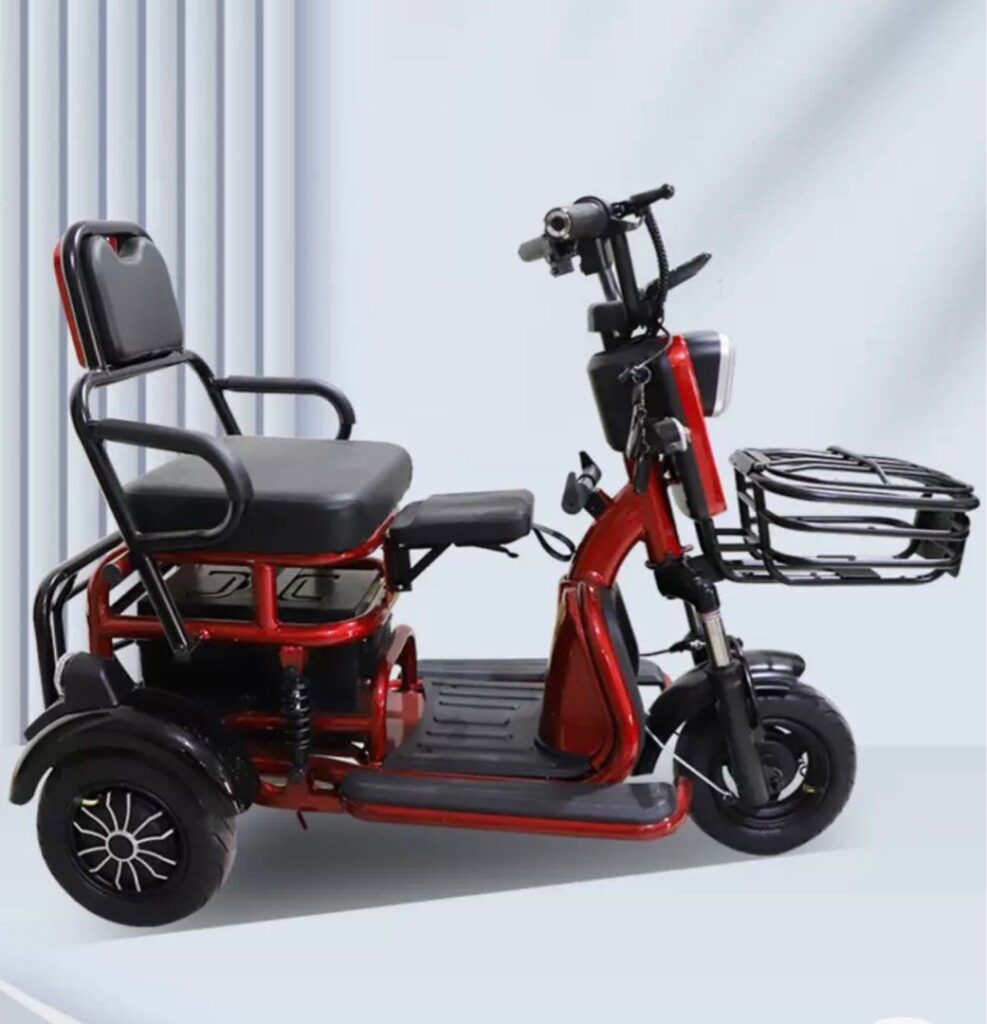Navigating the world of Personal Mobility Aids (PMAs) in Singapore can be quite challenging, especially with the rise of e-scooter shops that may offer illegal units. It’s crucial for potential users to familiarize themselves with the regulations surrounding Personal Mobility Aids to avoid hefty fines and the inconvenience of having your mobility aid confiscated. In Singapore, there are specific guidelines that define what constitutes a legal Personal Mobility Aid, including limits on speed, size, and user requirements. By understanding these regulations, you can make informed decisions and ensure that your mobility aid is compliant with the law.
Understanding Personal Mobility Aids (PMA) Legislation in Singapore
Understanding the legislation surrounding Personal Mobility Aids in Singapore is crucial for users to ensure compliance and avoid hefty fines or confiscation of their devices. The law specifies that Personal Mobility Aids must adhere to certain regulations to be deemed legal. For instance, Personal Mobility Aids are limited to a maximum speed of 6 km/h and must have only one seat. Additionally, they should not exceed the dimensions of 1.2m in length, 0.7m in width, and 1.5m in height for public transport use. It is essential for users to verify that their Personal Mobility Aid complies with these specifications to avoid potential issues on the roads or public transport facilities.
Furthermore, users must possess documentation from a physician confirming their walking difficulties, as this is a requirement that enables them to legally use Personal Mobility Aids in public spaces. Failure to provide this proof can lead to penalties and challenges in justifying the use of a Personal Mobility Aid. Above all, prospective buyers should be diligent when purchasing Personal Mobility Aids from various e-scooter shops in Singapore, as some units may operate illegally. Always check that the unit aligns with the regulations set by local authorities. Additionally, it is wise to inquire directly about the specifications and proofs required from the seller.
By doing proper research and understanding the requirements laid out by Singaporean regulations, users can make informed decisions, ensuring they choose a lawful Personal Mobility Aid that supports their mobility needs without risking severe fines or legal repercussions.
One-Sided Limitations: The Single Seat Rule for PMAs
In Singapore, the guidelines surrounding Personal Mobility Aids (PMAs) are strict, particularly regarding the single-seat rule. Unlike e-scooters or bicycles, Personal Mobility Aids are designed for the individual with specific mobility challenges, meaning they must adhere to the regulation of having only one seat. This limitation is primarily in place to ensure safety and proper usage on narrow pavements. When purchasing a Personal Mobility Aid, it is crucial to verify that the model complies with this regulation.
If a seller offers a Personal Mobility Aid with multiple seats or alterations to accommodate more than one passenger, it is a clear sign that the unit may be operating outside of the law, putting you at risk of confiscation and hefty fines. It’s advisable to seek detailed product specifications and ensure they align with the legal standards outlined by the authorities. Additionally, another critical aspect to consider is whether the Personal Mobility Aid has the requisite documentations supporting its legal status. Users are required to have a medical certificate to prove their walking difficulties, which adds an extra layer of scrutiny for Personal Mobility Aid devices.
Ensure that the Personal Mobility Aid you are considering adheres to the maximum laden weight of 300kg and the size restrictions for public transport usage. By being aware of these regulations, you can make a more informed decision, steer clear of illegal Personal Mobility Aids, and avoid the potential repercussions of fines or confiscation. Keeping yourself updated on these regulations will greatly empower you in your search for a compliant and lawful Personal Mobility Aid.

Documentation Required: Proof of Walking Difficulties
Proper documentation is key when it comes to navigating the legal landscape surrounding Personal Mobility Aids (PMAs) in Singapore. Ensuring that you have the requisite proof of walking difficulties from a licensed physician is an important first step. Not only does this verification make your PMA legitimate, but it also tightly aligns with the legal framework designed to protect users and pedestrians alike. So, before you decide to purchase a PMA, check if your physician has clearly documented your mobility challenges, as this will serve to safeguard your rights as a user and protect you from potential legal issues.
Furthermore, when investing in a PMA, always scrutinize the specifications provided by the retailer. PMAs must conform to a speed limit of 6 km/hr and be capable of carrying a maximum weight of 300 kg while occupying no more than 1.2 meters in length and 0.7 meters in width. This not only ensures compliance with legal standards but also plays a significant role in guaranteeing safety on public transport and minimizing accidents. By understanding these requirements and ensuring you have the necessary documentation, you can navigate the complexities of PMA ownership in Singapore with confidence.
Common Red Flags: Identifying Illegal PMAs at Shops
When navigating the landscape of Personal Mobility Aids (PMAs) in Singapore, it’s crucial to be vigilant in identifying red flags that could signify you are purchasing an illegal unit. One significant indicator is the design and specifications of the PMA. For instance, any device that exceeds the maximum allowed weight capacity of 300kg or dimensions beyond 1.2m (L), 0.7m (W), and 1.5cm (H) is not compliant with Singapore regulations. Additionally, if the seller fails to provide documentation proving that the PMA is equipped with a maximum speed limit of 6km/hr or boasts more than one seat, then it is likely illegal.
Always question the shop’s credentials and ensure they are selling compliant devices, especially in a market where illegal units may be more common than you think. Another critical factor is verifying the legitimacy of your need for a PMA. According to Singapore law, potential users must present proof of walking difficulties from a physician or doctor to justify the usage of a PMA.
If a shop is quick to sell a device without inquiring about this essential documentation, it’s a strong sign that the PMA may not meet legal standards. Being well-informed and observant when shopping for a PMA can save you from potentially hefty fines and the inconvenience of confiscation. Make sure to conduct thorough research and always prioritize products that meet the necessary legal criteria.

Consequences of Using an Illegal PMA: Fines and Confiscation Risks
Using an illegal Personal Mobility Aid (PMA) in Singapore can lead to significant consequences, including hefty fines and the risk of confiscation. The government has set strict regulations that dictate the size, speed, and weight limits for PMAs to ensure the safety of users and pedestrians alike. If your PMA exceeds the speed limit of 6 km/h, or its dimensions surpass the maximum allowable size of 1.2m in length, 0.7m in width, and 1.5m in height, you could face penalties. Additionally, if your PMA is designed for more than one user or doesn’t have proper proof of walking difficulties from a licensed physician, it is likely considered illegal.
Users caught using non-compliant PMAs risk incurring fines of up to $10,000, a steep price for non-compliance and the broader repercussions it may bring in terms of personal liability and public safety. When shopping for a PMA, it is essential to understand these regulations to avoid unintentional violations. Ensure that the unit you intend to purchase adheres to the specifications laid out by Singapore’s laws, particularly in terms of laden weight not exceeding 300kg. Verify the seller’s credibility and confirm that they provide only compliant PMAs. By making a well-informed decision and prioritizing safety, you can navigate the market effectively and avoid the pitfalls of owning an illegal PMA, ensuring compliance with local laws while enhancing your mobility.
Ensuring Your Personal Mobility Aid is Compliant with Singapore Laws
Understanding the regulations surrounding Personal Mobility Aids (PMAs) in Singapore is essential for ensuring you remain compliant and avoid hefty fines or confiscation of your device. Always verify that your PMA adheres to specific criteria, such as the speed limit of 6km/hr, a maximum weight capacity of 300kg, and appropriate dimensions for public transport. Moreover, it is crucial to establish proof of walking difficulties through a formal document from a physician or doctor.
By knowing these key regulations, you can make informed decisions when selecting your PMA. Moreover, being aware of the potential pitfalls and illegal units on the market can save you from significant penalties. As numerous e-scooter shops might sell illegal PMAs, diligence is necessary when making a purchase. Familiarize yourself with the legal requirements and ensure that the PMA you consider purchasing aligns with them. The peace of mind and mobility that come from using a legally compliant Personal Mobility Aid are invaluable in enhancing your independence while navigating Singapore’s streets safely.
I’ve had my fair share of close calls while riding an e-scooter, and I’m grateful for this blog’s emphasis on vigilance when purchasing PMAs. It’s easy to get caught up in the excitement of buying a new ride, but it’s essential to do your due diligence.
Thank you for sharing your personal experience, Evelyn! We’re glad to hear that our emphasis on vigilance when purchasing PMAs has resonated with you. It’s crucial to prioritize safety and compliance when it comes to personal mobility aids. If you have any further questions or concerns, please don’t hesitate to reach out to us at [email protected] or +65 6589 8877. We’re always here to help.
I totally agree with the blog’s emphasis on understanding PMA regulations in Singapore. As someone who uses an e-scooter for daily commutes, I’ve learned the hard way that it’s crucial to ensure compliance with speed limits and weight capacity. Thanks for highlighting these key points!
Hi Rahul, thanks for sharing your experience! We’re glad to hear that you’ve learned the importance of complying with PMA regulations in Singapore. At Eko Life, we prioritize safety and compliance above all else. If you have any more questions or concerns about purchasing PMAs or ensuring compliance, please don’t hesitate to reach out to us at [email protected] or +65 6589 8877. We’re always here to help.
I’m surprised by how many people are unaware of the regulations surrounding PMAs. This blog post is a great resource for anyone looking to navigate the world of e-scooters in Singapore. Keep up the good work!
Thank you for your kind words, Kavita! We’re thrilled to hear that our blog post has been a helpful resource for you. At Eko Life, we believe in empowering individuals with the knowledge and support they need to navigate the world of personal mobility aids safely and responsibly. If you have any further questions or concerns about PMAs in Singapore, please don’t hesitate to reach out to us at [email protected] or +65 6589 8877.